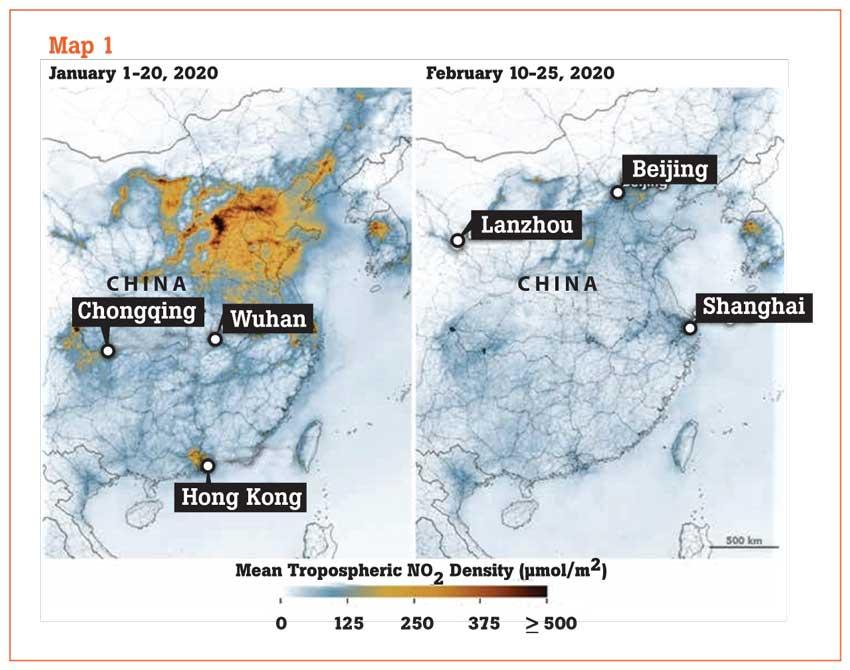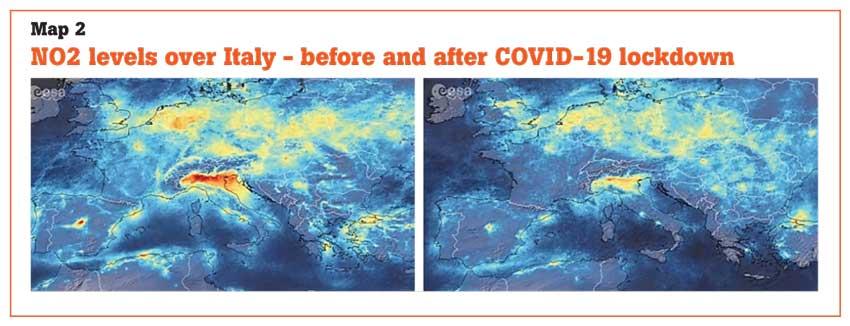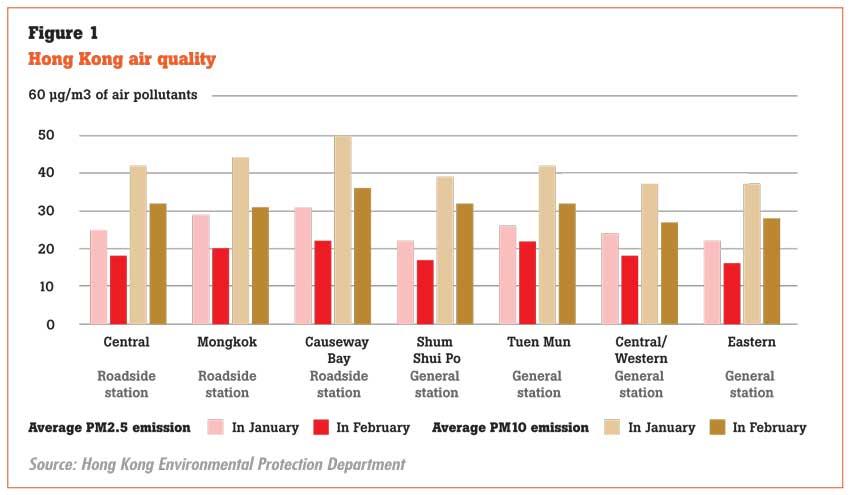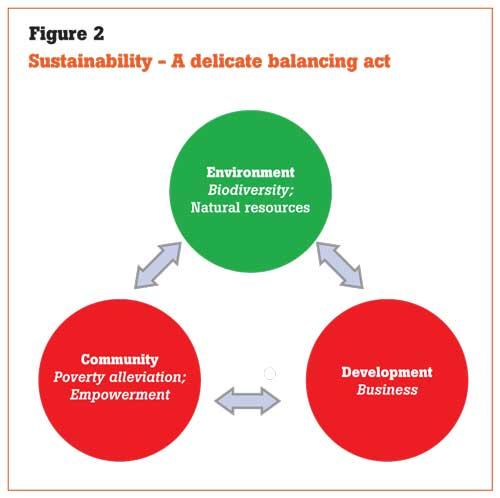

Today, mankind has enabled technological and scientific progress to eradicate diseases, helped increase life expectancy, reduced starvation and extreme poverty, revolutionised transport and communications, explored other worlds in the universe and made this generation the most successful one in history. But at what cost to nature and the environment?
So, has nature had enough of the damage mankind is causing this planet?
Is COVID-19 nature’s wakeup call to humankind?
Crisis
The pandemic that is fast unfolding before our eyes, seems to be something from a science fiction movie, virtually bringing the whole world slowly down to its knees. The fallout is impacting every aspect of our life –social, economic, financial and tearing apart the sheer fabric of life itself, ricocheting its way around the globe.
No one seems to be spared – rich and poor, developed and underdeveloped. Governments around the world grapple in trying to come to terms with the crisis and are throwing all the ‘heavy artillery’ of their technological might to ‘fight’ this tiny microscopic enemy.
Yes, eventually we will prevail. Our ‘superior’ technologies will find a vaccine to ‘neutralise’ the virus and stabilise the pandemic, leaving behind enormous chaos in every aspect of our socio-economic lives. The virus itself will ‘run out of steam’, battered and bruised, will sulk back into a corner, mutate and return again perhaps, to once again batter us, unless we all wake up to the realities of what our technology, development and lifestyle have done to the world we live in.

Technological and scientific development
Over the past decades we have seen technological and scientific development of an unprecedented scale. We have sent probes to remote locations of the universe, cloned animals, created artificial embryos, life-like robots, who respond emotionally, built fully functional bionic limbs, revolutionised transport systems, attempted to change weather patterns, etc. the list goes on.
And yes – all this has resulted in very commendable advances in health, education, transport, which has made the quality of life much better for all of us. There is no question about that.
In general, progress has brought about unprecedented prosperity but at the same time, also making it easier to do harm. But between the two kinds of outcomes — gains in well-being and gains in destructive capacity — the beneficial ones have largely won out.
Consequently, mankind is now wielding enormous power over everything or at least thinks they have. Maybe we have got to the point when we have come to think of ourselves as invincible and that maybe we can play God now.
But at what cost? Oxford Prof. Nick Bostrom, Director of the Future of Humanity Institute, in a new working paper, ‘The Vulnerable World Hypothesis’, argued that some technical advances become so cheap and simple to embrace, that they can eventually be destructive and therefore exceptionally difficult to control.
When we invent a new technology, we often do so in ignorance of all of its side effects. We first determine whether it works and we learn later, sometimes much later, what other effects it has. CFCs, for example, made refrigeration cheaper, which was great news for consumers — until we realised CFCs were destroying the ozone layer and global community united to ban CFC use.

Damage to environment
The anthropogenic impact our rapid development has caused on the environment includes changes to biophysical environments and ecosystems, biodiversity and natural resources.
- Global warming – By 2050, sea levels are predicted to rise between one and 2.3 feet as glaciers melt (large areas of India, Bangladesh, Thailand, the Netherlands, Maldives, etc. will be inundated, affecting some 200 million people or more).
- Environmental degradation, including de forestation – Between 1990 and 2016, the world lost 502,000 square miles (1.3 million square kilometres) of forest, according to the World Bank — an area larger than South Africa. (Since humans started cutting down forests, 46 percent of trees have been felled, according to a 2015 study in the journal Nature.)
- Mass extinction and biodiversity loss – Scientists estimate about 55,000-73,000 species go extinct each year (which is about 150-200 species of plant, insect, bird and mammal, becoming extinct every 24 hours. This is nearly 1,000 times the ‘natural’ or ‘background’ rate and is greater than anything the world has experienced since the vanishing of the dinosaurs nearly 65 million years ago.)
- Overconsumption – Humans generated 2.41 billion tonnes of solid waste in 2017 – (equivalent to 50,000 average sized cruise liners).
- Pollution – Annual plastics production in the world for 2017 was 348 million metric tonnes (equivalent to 600,000 Airbus 380s).
- Consumerism – By 2030, the consumer class is expected to reach five billion people. (In 2019, the number of mobile phone users reached 4.68 billion).
And the list goes on.
What is nature doing about all this? 
This fallout from vast, unchecked development and scientific advances, have wreaked havoc on this planet of ours.
But yes, nature is very strong and resilient. It can absorb a great quantum of abuse. The UN’s environment chief, Inger Andersen, said, “There are too many pressures at the same time on our natural systems and something has to give.”
She added, “We are intimately interconnected with nature, whether we like it or not. If we don’t take care of nature, we can’t take care of ourselves. And as we hurtle towards a population of 10 billion people on this planet, we need to go into this future, armed with nature as our strongest ally.”
So, what seems to be happening? Is nature waking from her slumber and taking notice?
Human infectious disease outbreaks are rising and in recent years, the human race has been ravaged by Ebola, bird flu, Middle East respiratory syndrome (MERS), Rift Valley fever, sudden acute respiratory syndrome (SARS), West Nile virus and ZIKA virus.
And now COVID-19 is bringing the whole world, including all the ‘super powers’, to their knees? Never before have we faced such an all-encompassing, worldwide calamity. Industries have shut down, stock markets have crashed, heath systems are collapsing and there is economic and social ‘meltdown’ across the world. No nation is spared, north and south, developed and developing, rich and poor alike.
What are ‘repercussions’ on environment?
With the whole world virtually ‘shutting down’ in the past few weeks in different degrees, there are some remarkable changes taking place on planet earth.
Reduction in CO2 emissions
China released around 800 million tonnes of CO2 (MtCO2) in January/February 2019. With the virus shutting down power plants, industries and transport, emissions are reported to be down to 600 million tonnes during the same period, which means that the virus could have cut global emissions by about 25 percent to date. (According to rough calculations done by Stanford University Scientist Marshall Burke, the reduction in air pollution may have helped save the lives of 77,000 people in China under the age of five and over 70.) (See Map 1)
In Italy, since the country went into lockdown on March 9, NO2 levels in Milan and other parts of northern Italy have fallen by about 40 percent. (See Map 2)
Improvement of air quality
The air quality index or scale (AQI) in many large cities, especially in Asia (including Colombo), was of very poor quality of late. Consequent to the virus outbreak, these levels are seen to have dropped significantly. Air pollution in Hong Kong is considered a serious problem. Visibility was less than eight kilometres for 30 percent of the year and air quality was classified as ‘unhealthy’. Cases of asthma and bronchial infections have soared in recent years due to reduced air quality.
However, after the virus caused shut downs, the air pollution has shown significant reductions. (See Figure 1)
Less pollution
The limitation of human activity due to the virus lockdowns in several countries has also reduced waste and consequently pollution levels. Venice, ‘The City of Canals’, was a highly overvisited tourist site, giving rise to high pollution of its waters by the large number of boats, making the waters murky and dirty. Today, with no tourist traffic, the canals of Venice are becoming clearer.
Is this a ‘wake-up call’?
Is nature awakening form her deep slumber and saying, ‘Enough is enough’? Is she showing us that she can unleash powerful forces to tame mankind and heal herself?
I am no myopic rabid environmentalist. I would like think I am a pragmatic environmentalist. It is quite obvious that these current low levels of human inactivity cannot be sustained for a long period. Industrial and economic activity has to resume and resume as quickly as possible. The world has to resume its activities and development has to restart and inevitably, pollution, emissions and waste will also start increasing. The important issue here is to sit back and take stock. I have been constantly advocating sustainable consumption practices (SCP) in the tourism industry that I have worked in for close upon 30 years (sometimes to deaf ears).
The whole point is that the world has lost sight of the basic principles of sustainability. Sustainability is the ‘balance’ between development, environment and the community that we live in.
It never promotes focusing only on the environment and stifling development. Nor does it espouse development at all costs, disregarding communities and environment, which sadly the world and Sri Lanka, seems to be hell bent on doing.
So, maybe this crisis is just showing us how we should correct ourselves. We need to change our lifestyles and reduce our rabid consumerism and go back to the fundamentals.
The earth has shown us, with the above examples, that given time and care, it can heal itself. The COVID-19 crisis may provide an opportunity for change but Prof. Andrew Cunningham of the Zoological Society of London said, “I thought things would have changed after SARS, which was a massive wake-up call – the biggest economic impact of any emerging disease to that date.
Everybody was up in arms about it. But it went away because of our control measures. Then there was a huge sigh of relief and it was back to business as usual. We cannot go back to business as usual.”
Peter Gleick, a climate scientist and founder of the Pacific Institute in Berkeley, California, warned, “As for the environmental benefits we see from the slowdown of day-to-day life and economic activity, in terms of improving air quality and other slight benefits, it’s a good sign that our ecosystems are somewhat resilient.
But it would be nice if we could improve our environment without having to cripple our economy.” (See Figure 2)
Million dollar question
So, the million dollar question is, are we prepared to change?
I hope and pray that mother nature is giving us just a stern warning and that we have not angered her beyond the point of no return.
(Srilal Miththapala is a hospitality sector expert and a former President of
The Hotels Association of Sri Lanka)




